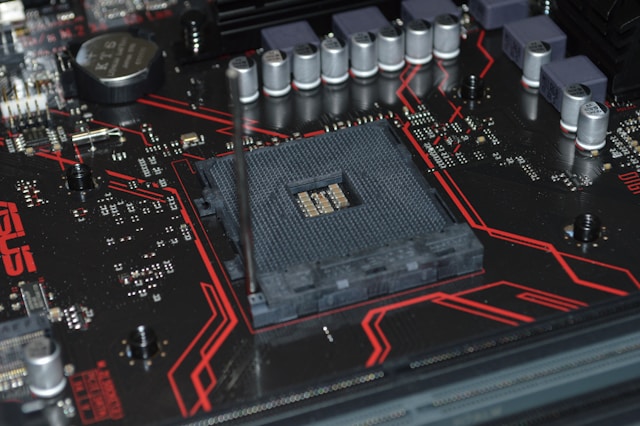Voltage conversion is a crucial process in the field of electronics and electrical engineering. It involves changing the voltage level of an electrical power source to match the requirements of different devices and applications. In our daily lives, we encounter numerous instances where voltage conversion plays a vital role, often without even realizing it. This article delves into the practical applications of voltage conversion, shedding light on its significance and how it affects our everyday experiences.
Understanding Voltage Conversion
Voltage conversion typically involves two primary methods: stepping up the voltage (boosting) and stepping down the voltage (buckling). These methods are executed using transformers, converters, and inverters, depending on the specific needs of the application. By altering the voltage, we can efficiently manage and distribute electrical energy, ensuring that devices receive the appropriate power levels for optimal performance.
Everyday Applications of Voltage Conversion
- Household Appliances
One of the most common applications of voltage conversion is in household appliances. Many appliances, such as refrigerators, microwaves, and washing machines, operate on different voltage levels. In regions with a standard voltage of 110V, appliances designed for 220V need a step-up converter to function correctly. Conversely, in areas with a 220V supply, step-down converters are used for appliances requiring 110V. This conversion ensures that appliances can be used safely and effectively regardless of the regional voltage standards.
- Portable Electronics
Portable electronic devices like laptops, smartphones, and tablets often come with chargers that include built-in voltage converters. These converters adapt the voltage from the power outlet to the required level for charging the device. For instance, a smartphone charger typically converts 110V or 220V from the outlet to a lower voltage suitable for charging the battery, usually around 5V. This process is crucial for protecting the device’s internal components from damage due to excessive voltage.
- Renewable Energy Systems
Voltage conversion is integral to the operation of renewable energy systems, such as solar panels and wind turbines. Solar panels generate direct current (DC) electricity at varying voltage levels, depending on the intensity of sunlight. Inverters are used to convert this DC voltage to alternating current (AC) voltage, which is the standard for household and industrial use. Similarly, wind turbines produce AC electricity at varying frequencies and voltages, which must be converted to stable AC voltage for grid integration.
- Electric Vehicles (EVs)
Electric vehicles rely heavily on voltage conversion for efficient operation. The batteries in EVs store energy at a high voltage, typically around 400V or higher. To power the vehicle’s electric motor, this voltage needs to be converted to a lower level. Additionally, onboard chargers convert AC voltage from charging stations to DC voltage for battery storage. This multi-step conversion process ensures that the vehicle operates smoothly and efficiently, with optimal power management.
- Industrial Applications
In industrial settings, voltage conversion is essential for operating heavy machinery and equipment. Different machines require different voltage levels for optimal performance. Step-up and step-down transformers are used to match the voltage supply with the specific needs of each machine, ensuring safe and efficient operation. For instance, industrial welding equipment often requires precise voltage levels to achieve the desired welding quality and efficiency.
FAQ: Voltage Conversion in Everyday Life
Q1: Why is voltage conversion necessary for household appliances?
A1: Voltage conversion ensures that household appliances receive the appropriate voltage level for safe and efficient operation. Appliances designed for specific voltage standards may not function correctly or could be damaged if used with an incompatible voltage supply.
Q2: How do voltage converters in chargers protect portable electronics?
A2: Voltage converters in chargers adapt the voltage from the power outlet to a lower, safer level suitable for the device’s battery. This prevents damage to the internal components and ensures safe charging.
Q3: What role does voltage conversion play in renewable energy systems?
A3: Voltage conversion in renewable energy systems involves converting the varying DC voltage from solar panels or the variable AC voltage from wind turbines to a stable AC voltage for household and industrial use, ensuring compatibility with the power grid.
Q4: How is voltage conversion critical for electric vehicles?
A4: Voltage conversion is essential for electric vehicles to manage the high voltage stored in batteries and convert it to lower levels for the electric motor. Onboard chargers also convert AC voltage from charging stations to DC voltage for battery storage.
Q5: Can you give an example of voltage conversion in industrial applications?
A5: In industrial settings, voltage conversion is used to match the voltage supply with the specific needs of heavy machinery, such as welding equipment, ensuring optimal performance and safety.
Researcher’s Experience: The Importance of Voltage Conversion
As a researcher in electrical engineering, I have witnessed firsthand the transformative impact of voltage conversion on various applications. During my work on renewable energy projects, I observed how voltage conversion enables the seamless integration of solar and wind power into the electrical grid. Without efficient converters and inverters, the variable output from these renewable sources would be challenging to utilize effectively.
In another project focused on electric vehicles, I studied the intricacies of battery management systems. Voltage conversion played a pivotal role in ensuring that the high-voltage energy stored in EV batteries could be safely and efficiently used to power the vehicle’s motor. This not only enhanced the vehicle’s performance but also extended the battery life, showcasing the critical importance of voltage conversion in modern technology.
In conclusion, voltage conversion is a fundamental process that underpins the functionality of numerous devices and systems we rely on daily. From household appliances to renewable energy and electric vehicles, the ability to convert voltage levels efficiently and safely is essential for technological advancement and sustainability.
